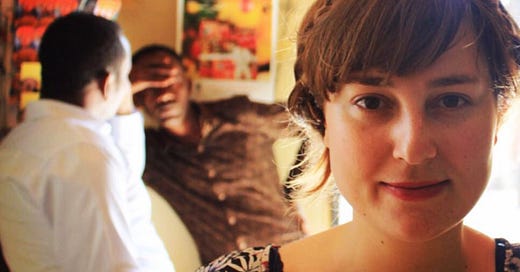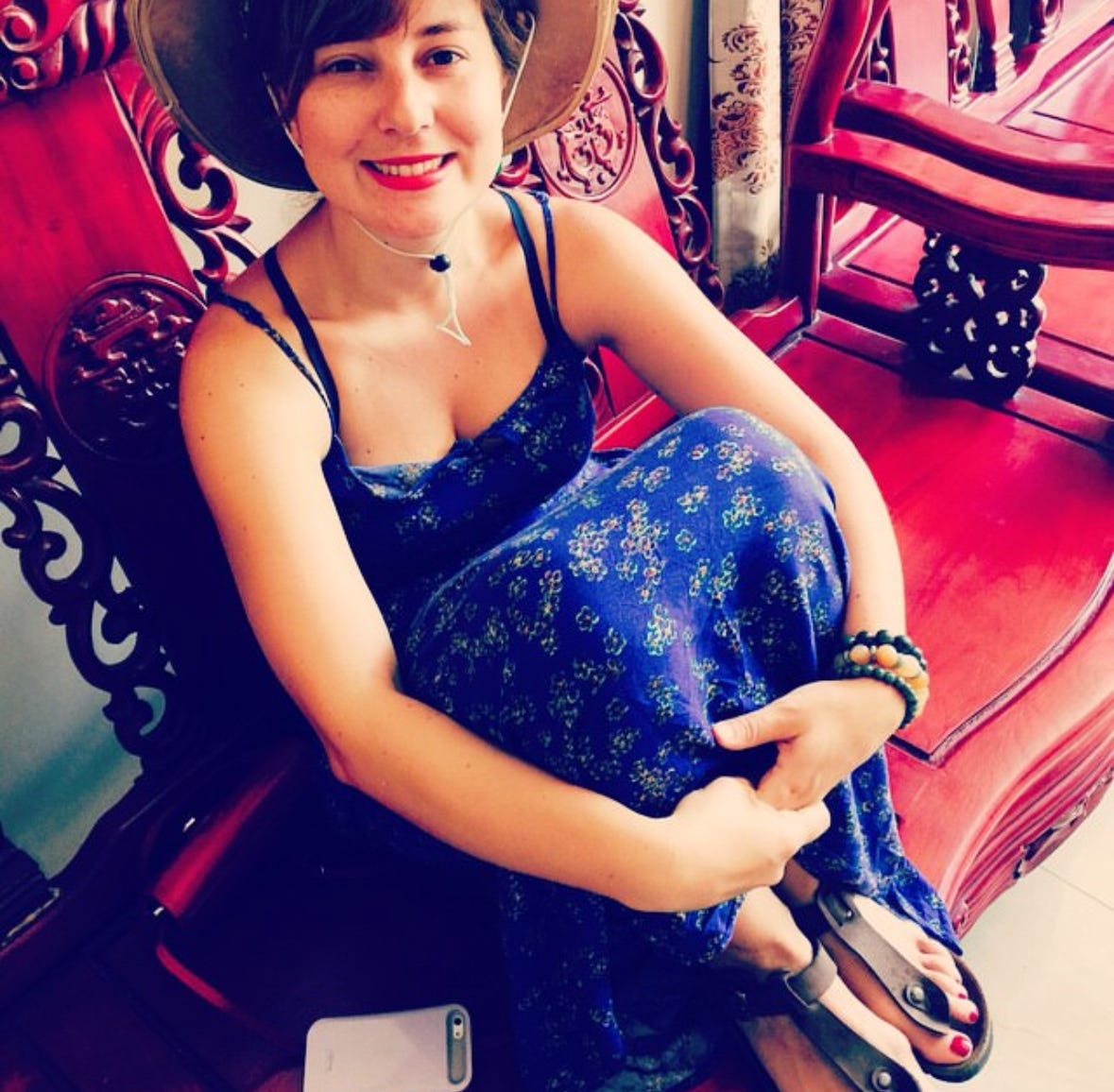Okay, I’ll start with a confession: I used to travel like crazy. So what I’m about to say might come off as wildly hypocritical—and to anyone who thinks that, I totally get you. But first, let me make my case.
Ever since I graduated, I’ve had jobs that required an intense amount of travel. I’m not talking about your regular two-hour flight to a nearby city.
There was a month when I traveled to South Africa, Lebanon, and the Philippines and when I came back, my body broke into a fever from sheer exhaustion.
During my 20s, traveling gave me a ton of excitement. Coming from a family with modest means, work travel was, at first, the only way I could see the world.
The tricky part was that as I started saving money, I began spending all of it on even more travel. Backpacking in Myanmar? Count me in. A week in Rio de Janeiro all by myself? Why not?
I remember, 10 years ago when my travel spiral began, traveling—especially for people who weren’t born into wealth—was still seen as a rare and exceptional thing.
In my parents’ generation, going on one or two international trips in your entire life was a big deal. You’d be considered sophisticated, cultured, even rich.
Where I come from, culturally, travel also has a different meaning. In Anatolia, and in the many cultures it encompasses, there’s the archetype of the traveler—just as there are archetypes of the healer, the inventor, the leader. It’s widely acknowledged that certain people are born into communities to fulfill the destiny of a traveler.
Take Evliya Çelebi, for instance. He was a 17th-century Ottoman explorer and travel writer, best known for his epic ten-volume travelogue, the Seyahatname (Book of Travels). Born in Istanbul in 1611, he spent over 40 years journeying across the Ottoman Empire and beyond—from Vienna to Mecca. The Seyahatname served as a guidebook for generations, offering a credible, witty, introspective account of cultures, daily life, funny incidents, and peculiar synchronicities Çelebi encountered during his travels. I have not read all 10 volumes of his work, but what I have read feels almost like a spiritual account of his travels—from being offered food and shelter in a stranger’s house to witnessing the trance-like state of a whirling dervish ceremony in Konya.
Anthropologically, travel wasn’t meant to be an activity people did just to take the same suboptimal selfies in front of the same monument, the same restaurant, the same shopping mall. SAME SAME SAME.
Some people—who were born into the destiny of being a traveler—saw it as a calling. They went to places with a sense of duty, carefully documenting their experiences to recount for others. Those who never left their village could live vicariously through their stories. Because you know… they had other things to do, fulfilling their destinies as storytellers, carpenters, or community leaders.
These days, we seem to have forgotten that we are not all the same and that we each serve unique purposes within the broader communities we belong to. So when ALL of us take the role of a traveler, it just doesn’t work.
As archaic or “woo-woo” as that may sound, I intuitively and strongly believe this.
Let’s look at how we travel today.
Anecdotally speaking, nearly everyone I know in their 30s is traveling constantly regardless of income. I was guilty of this myself until recently, but then I declared 2025 the year I wouldn’t travel. (And failed miserably.)
I couldn’t stick to it, because I work in a field where my ex-boss once boasted about boarding 152 flights in a single year. I’m sometimes expected to take a flight from Rome to London to attend a one-hour conference in person just to “listen and network.” And as many of us in these circles know, most of these conferences are utterly useless and don’t result in any long-term networking opportunities. So why travel for them?
That’s only the professional side.
On the personal front, it’s been hard to consistently say no to “friends” who suggest meet-ups in this city or that one. Some of them are unemployed. I know credit card debt and rapidly dying savings are funding many of these frequent trips.
I get overwhelmed by the sheer amount of travel-related conversation. Recently, for example, a friend told me about a Christmas trip that went totally wrong. She traveled to Mexico City, then to LA and Hawaii—all within two weeks—picked up a violent virus, and spent most of the trip in bed.
It got me thinking. Why did she have to travel to all these widely far-apart places in two weeks? Wouldn’t it be enough to visit just one of them? When asked, she said, “Well, you know, we were in the region.”
That is the entire Gulf of California and the Pacific Ocean. An entire ocean should not be treated like a neighbourhood you casually stop by on your way to a haircut appointment.
Whatever this is, it is not normal.
My spiritual foundation led me to believe that most of what we’re searching for is already within us—and often, just around us. I don’t believe we need to hop on a plane and overwhelm our nervous systems and digestive tracts with a barrage of new stimuli and bacteria just to reach enlightenment. That’s a very extractive view of travel.
I acknowledge that some forms of travel can be catalysts for extraordinary personal growth. But this rite of passage should definitely not be prescribed as a one-size-fits-all approach for all people—and not this regularly, at the expense of our planet, bank accounts, and well-being.
I don’t think our bodies are built to board a plane for work every single week.
I don’t believe, for pleasure and connection, we’re meant to fly on a giant metal bird at 35,000 feet every month.
I don’t think we’re meant to live under the weight of debt and financial stress to see the world.
I believe we’re meant to know our neighbors.
We’re meant to sweep the dirt in front of our doors and tend to our neighborhood plants.
I believe we need to stay more and travel less.
We need to get bored more often.
We need to commit and cultivate.
Want to support my writing?
If you enjoyed this article and my other content, I’d be so grateful for your support—like, comment, restack, and recommend to help spread the word. And if you’re feeling extra generous, consider making a pledge. Your support truly means the world to me.🫶🏼






Not to mention the environmental ramifications of travel too. My motto these days is “travel occasionally, commit to community regularly.” It helps that I can’t afford international travel these days anyway.
I think you’re really on to something. Travel can be invigorating and even healing, but the trajectory we’re on now is traveling for the aesthetic or for the sake of saying we’ve been somewhere. It’s a to-do list, not a true exploration of a new place and people. I’m starting to shift how I view my travels. I’m focusing more on slow days or a slow uncovering of a new city rather than feeling like I need to run from place to place to place. Or to monument to monument to monument. My favorite travel memories are the moments I’ve stumbled upon something beautiful, randomly. Slow travel is my new mantra.
Thank you for the read, Sema!